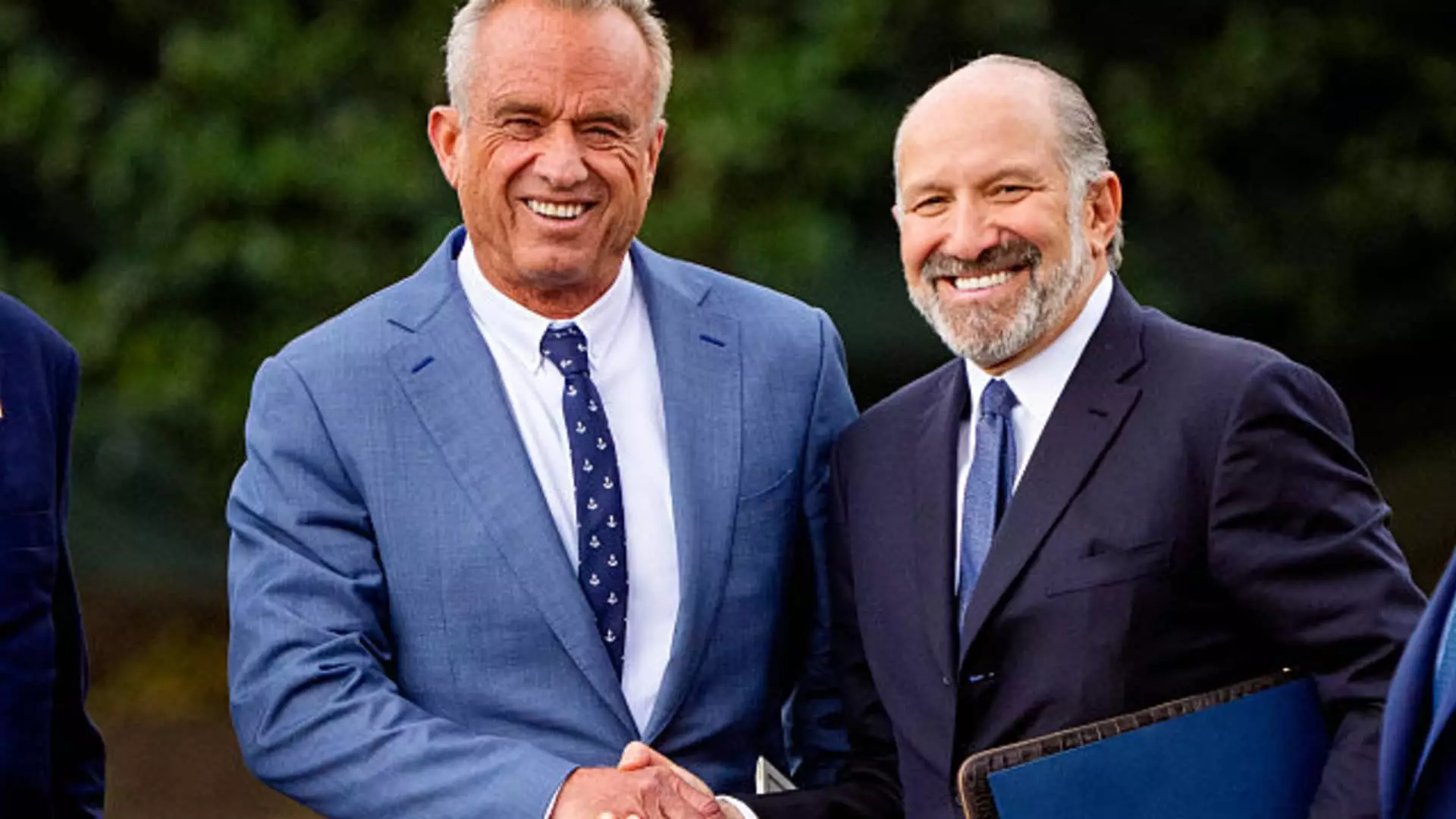The appointment of Robert F. Kennedy Jr. as the Secretary of Health and Human Services (HHS) represents an unsettling turn in the landscape of public health. Once revered for efforts in environmental activism, Kennedy has aligned himself as a prominent anti-vaccine advocate. This shift raises valid concerns about his competency to lead an agency crucially charged with the public’s health. Analysts from Cantor Fitzgerald have voiced their alarm, not just because Kennedy’s positions align with conspiracy theories rather than science, but due to the very real implications these beliefs have in the U.S. healthcare landscape.
Kennedy’s controversial stance on vaccines is not a position that can be brushed aside lightly. Against overwhelming scientific evidence supporting vaccination as a fundamental public health strategy, he appears to underestimate their role in controlling preventable diseases. With measles—a disease eradicated in many parts of the world—making a comeback, the disconnect between Kennedy’s rhetoric and established medical consensus is not just irresponsible; it’s dangerous.
The Fallout from Anti-Science Rhetoric
Critics of Kennedy argue that his leadership could not only undermine public trust in vaccines, which have been proven to save lives, but will potentially re-invigorate vaccine hesitancy in America’s population. Following Peter Marks’ resignation from the FDA, which came as a direct response to Kennedy’s skepticism, alarm bells rang among public health experts. Marks’ departure signifies an alarming ripple effect within a leadership structure already beleaguered by misinformation and doubt.
This disheartened reaction raises a critical question: how can an agency dedicated to protecting American health function under a leader who categorically dismisses science-based approaches? There’s an inherent danger in endorsing narratives that downplay vaccine efficacy, especially when they are accompanied by unverified alternative treatments. Promoting such views poses not merely an ideological threat, but a legitimate public health crisis.
Conflict of Interest: Science vs. Ideology
Kennedy’s reign at HHS signifies a deeper ideological rift within American politics—a split that extends beyond simple scientific debate. The very principles upon which public health policy is built require evidence, transparency, and an unwavering commitment to protecting public well-being. Any leadership that prioritizes rhetoric over rigorous scientific analysis endangers these principles.
In their note to clients, Cantor analysts made it clear: HHS needs a leader who exercises scientific rigor, not one who plays to the gallery of misinformation. As they succinctly put it, Kennedy is an “amateur scientist” who grapples with the critical distinction between correlation and causation, and this is a disqualification for any leadership position in health policy.
The Economic Implications Are Staggering
The tremors from Kennedy’s appointment have already impacted the financial market, with vaccine manufacturers like Moderna and Novavax seeing their stocks plummet following Marks’ exit. While the analysts claim that “this is much bigger than that,” it’s noteworthy that the economic ramifications of eroding trust in vaccines affect not only public health but economic stability as well.
Biotech investors and companies are not just worried about immediate stock fluctuations; they are concerned about the long-term viability of vaccines in a landscape that risks becoming increasingly anti-scientific. The wider economic implications of diminished immunization rates could lead to a resurgence of outbreaks that not only exacerbate public health concerns but also cripple the economic recovery from the COVID-19 pandemic.
The Fundamental Question: Who Will Lead Us Forward?
Kennedy’s anti-vaccine crusade illustrates a troubling portrait of leadership, increasingly disconnected from scientific reality. If apathy toward vaccine science remains unchecked, the consequences may lead to more preventable deaths, economic fallout, and the revival of outdated and disproven health narratives.
In an era when we should be advancing public health measures that are rooted in scientific expertise, allowing anyone to lead who promotes dangerous ideologies is utterly unacceptable. As such, it becomes imperative to scrutinize and question the integrity and intentions of those in leading health positions. The stakes are high, and we cannot afford to compromise on scientific truth for the sake of ideology.

